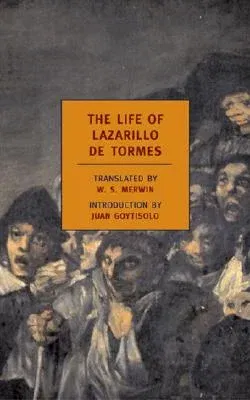The Life of Lazarillo de TormesPaperback, 31 December 2004

Qty
1
Turbo
Ships in 2 - 3 days
In Stock
Free Delivery
Cash on Delivery
15 Days
Free Returns
Secure Checkout

Part of Series
Nyrb Classics
Print Length
144 pages
Language
English
Publisher
New York Review of Books
Date Published
31 Dec 2004
ISBN-10
1590171322
ISBN-13
9781590171325
Description
Product Details
Book Format:
Paperback
Country of Origin:
US
Date Published:
31 December 2004
Dimensions:
19.96 x
17.12 x
0.97 cm
Genre:
Coming of Age
ISBN-10:
1590171322
ISBN-13:
9781590171325
Language:
English
Location:
New York, NY
Pages:
144
Publisher:
Series:
Weight:
181.44 gm